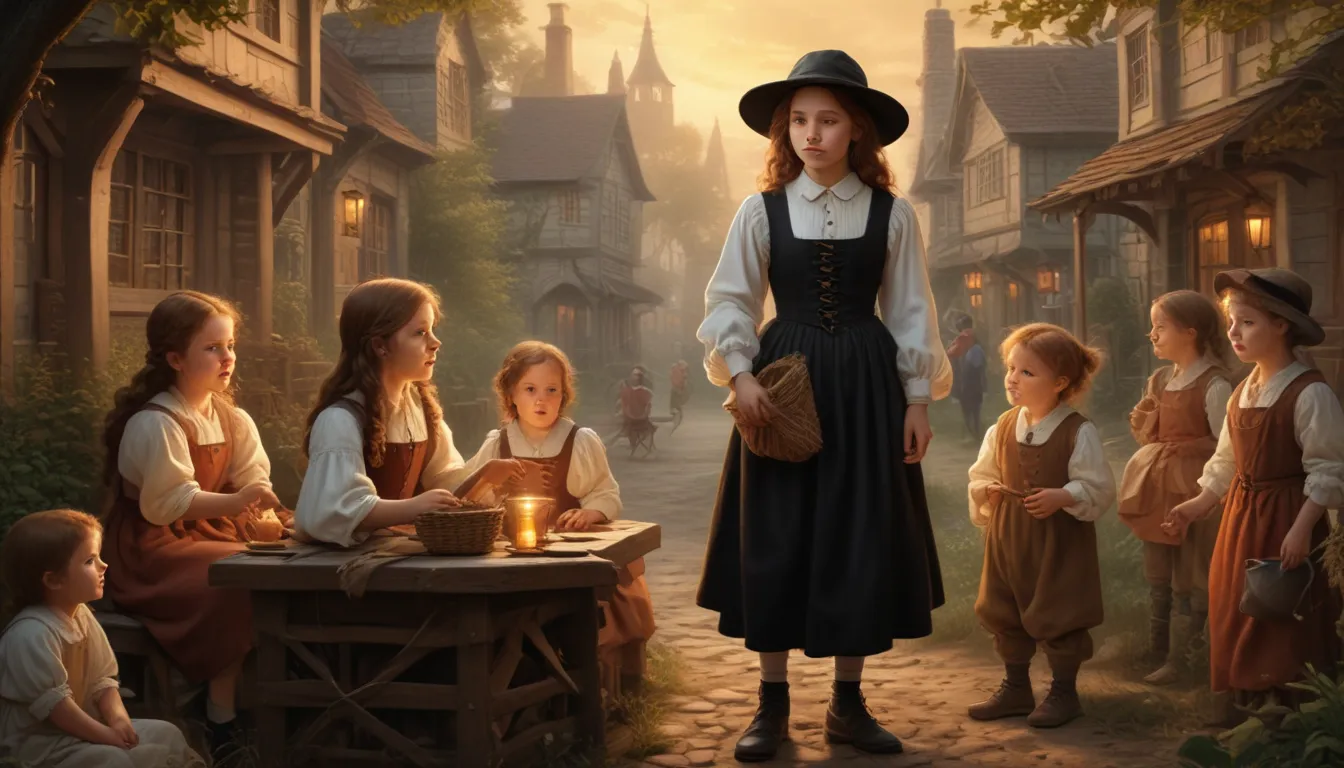The images in our articles may not match the content exactly. They are used to grab your attention, not to show the exact details in the text. The images complement the text but do not replace it.
Welcome to a journey through time to discover the unique experiences and challenges that shaped the lives of Puritan children. The Puritans, a group of English Protestants in the 16th and 17th centuries, were influential in the early development of the United States. In this article, we will delve into 19 intriguing facts about Puritan children, shedding light on their upbringing, education, and daily lives. From the strict discipline they faced to the games they played, these insights will offer a glimpse into the world of Puritan youth.
Understanding Puritan Children
Puritan children were viewed as “miniature adults” and were expected to exhibit maturity and responsibility from a young age. In Puritan society, children were integral to the family structure and were considered a blessing from God. They were expected to contribute to the household through chores and obedience.
Emphasis on Education
Education was a top priority for Puritans, as they believed that children should be literate to read the Bible and understand religious teachings. Therefore, formal education was highly valued in Puritan communities. Additionally, religious teachings permeated every aspect of a Puritan child’s life, shaping their worldview and moral compass.
Work Ethic and Responsibility
From an early age, Puritan children were involved in household chores and agricultural tasks. This hands-on involvement instilled a strong work ethic and a sense of responsibility in the youth. Gender roles were also clearly defined, with boys and girls socialized according to distinct expectations regarding their future roles as men and women in the community.
Religious Influence and Discipline
Punishments for Puritan children were severe, with strict discipline enforced for disobedience or moral transgressions. The Puritan theology emphasized the concept of “original sin,” teaching children that they were born sinful and must strive for redemption through piety and righteous living. Additionally, Sundays held immense importance in Puritan households, with children expected to participate in lengthy church services and adhere to strict Sabbath observance.
Community and Literature
Puritan children were raised within a tightly-knit community where communal values and collective responsibility were paramount. They were exposed to literature that reinforced religious teachings and moral lessons, promoting piety and virtuous living. Boys often underwent apprenticeships to learn trades, while girls received vocational training in domestic skills.
Legacy and Impact
The values instilled in Puritan children, including discipline, piety, and a strong work ethic, left a lasting imprint on American culture. The Puritan approach to child-rearing and education played a pivotal role in shaping the evolving concept of childhood in American history, leaving a profound impact on future generations. The legacy of Puritan values continues to resonate in American society, influencing societal norms and attitudes toward education and morality.
Conclusion
In conclusion, the upbringing of Puritan children was deeply intertwined with the religious, social, and cultural fabric of the time, shaping their worldview and values in profound ways. By understanding their world, we gain valuable insights into the historical and cultural context of the Puritan era, fostering a deeper appreciation for the complexities of childhood in early America. Despite the challenges they faced, these children exhibited resilience and adaptability, shaping the future of the Puritan community.
FAQs
What were the key values instilled in Puritan children?
Puritan children were raised with a strong emphasis on discipline, obedience, and religious piety. They were taught to adhere to strict moral codes and to prioritize their spiritual development from a young age.
How did Puritan children spend their leisure time?
Puritan children engaged in a variety of activities during their leisure time, including games such as tag, hide and seek, and hopscotch. They also participated in chores, crafts, and storytelling, fostering a sense of community and creativity within their daily lives.=






